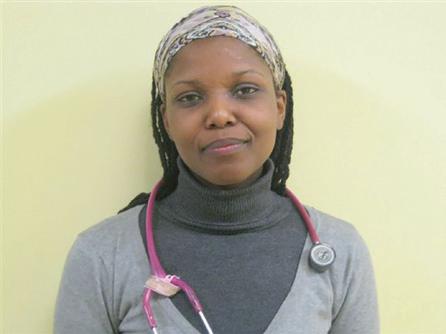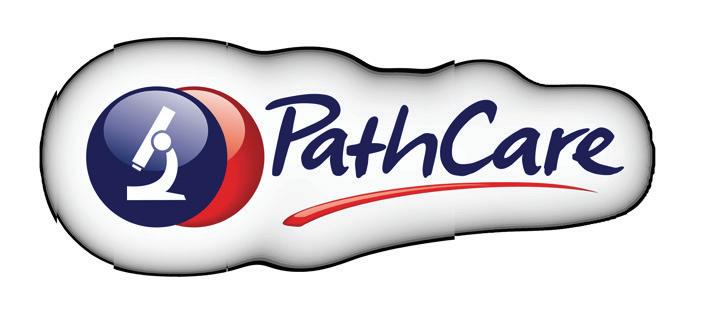




BELLVILLE
Dr N Mtimkulu
Dr MS Jacobs
Dr M Magopa
021 950 8930 021 945 2970
Dr T Isaacs 021 945 3483 021 110 5070
Dr Z Dunn 021 110 5059
TOKAI
Dr A Hendricks 021 712 2691
Dr T Motsema 021 110 5940
Dr M Tisane 021 023 2046
GATESVILLE
Dr N Allie 021 637 4323
Dr R Kader 021 638 2647
MITCHELLS PLAIN
Dr D Karangwa
Dr G Khobane
Dr T Masina
Dr O Orji
021 110 5064
Dr N Maseko 021 110 5157
RICHARDS BAY
Dr J Moodley
Dr MN Nkanyane
021 391 4297 021 391 4132/3 021 110 5945 035 772 1581 035 791 5506
Dr SMJ Zulu 035 791 5438
Dr M Tshimanga 035 791 5446
GATESVILLE & MITCHELLS PLAIN
Dr A Davids, Dr MA Jeeva & Dr H Khamissa
GATESVILLE: 021 637 1343/4
MITCHELLS PLAIN: 021 392 8141/0516
For more information contact us at info@melomed.co.za
Interesting pregnancy statistics
Antenatal Classes: Preparing for your baby's arrival
Hepatitis in paediatrics: Understanding the risks and prevention strategies
Breathing for two
Breastfeeding part two: Busting the myths


PUBLISHER: Health Bytes CC | CONTACT: christa@health-bytes.co.za | GRAPHIC DESIGNER: Marius Laubser | TEL: 021
Published in the interest of your health by MELOMED
22.5
61%
12kg
is the average age for a South African woman to give birth for the first time is the average weight gained by women during pregnancy
of women receive an epidural or spinal anaesthesia for vaginal deliveries women get pregnant every second worldwide
10
Excited about your baby’s arrival, but not quite sure about what to expect before and after pregnancy? You’re not alone. Every new mum and dad can use some help. Antenatal classes prepare you for birth, breastfeeding and transition to parenthood.
Antenatal classes aim to equip expecting parents with all the knowledge needed for them to prepare for the delivery of their child. These classes provide expecting parents, both mummies and daddies, with the confidence and knowledge to give their newborns a good start in life. Parents-to-be also enjoy the opportunity to connect with other expecting parents, clarify any concerns, and gain confidence through knowledge and practice.
Antenatal classes go beyond just giving you information. They also provide you with hands-on experience of the delivery process. Melomed hospitals provide tours of the delivery rooms to familiarise expecting parents with the environment in which the mother-to-be will deliver her child. Clarifying queries and concerns with qualified staff.
If you have any burning questions about your pregnancy journey, these classes are the perfect opportunity to air your concerns. The trained staff are more than willing to help you in your journey and put your mind at ease.

Antenatal classes are a great way to connect with other parents who are delivering around the same time as you are. You will likely form friendships and find the shared experience highly supportive, especially if you don’t currently have friends with young children. These bonds can help you through the first few months with your baby and provide potential playmates for your child as well.


Classes are held in small groups and typically cover how to prepare for the birth, including getting familiar with the hospital birthing environment, and how to care for your baby when they arrive.
As a reference point, here are some of the main learning points you can expect at a Melomed Hospital:
• Giving birth and early days with your newborn
• When to go to the hospital
• Labour in a hospital environment
• Managing surgical and episiotomy wounds
• Understanding emotional changes
• Strengthening pelvic floor muscles
• Common characteristics of a newborn
• Swaddling your baby
• Burping your baby
• Managing a choking baby
• Breastfeeding
• Skin-to-skin benefits
• Responding to baby cues
• Breastfeeding positions

• Having the correct latch
• Why and when babies will need supplements
• Getting back to work while breastfeeding
• Milk expression and milk storage
• Increasing breast milk supply
• Prevention of sore nipples
• Relief of engorgement/oversupply
• Prevention of blocked milk ducts
• Coping with baby's cries
• When to wake a sleeping baby to breastfeed
• Baby hygiene
• Baby baths and diaper changes
• Taking care of your baby's eyes
• Taking care of the umbilical cord
Start thinking about this early in your pregnancy and book your place. Classes may be fully booked at the time you wish to attend. Most expecting parents start going for classes at around 30 to 32 weeks of pregnancy but can also attend introductory classes before that. If you are expecting twins, you are likely to have an earlier delivery date, and hence should start your classes earlier at around 24 weeks of pregnancy.

Our Melobabe Maternity Programme supports expectant mothers with their exciting journey ahead.
Sign up today! Ask your gynaecologist for a Melobabe registration form.
For more information regarding the support group in your area, contact info@melomed.co.za.

By Dr Karabo Seake
Hepatitis, a liver inflammation caused by viral infections, is a significant public health concern affecting children worldwide. As a parent or caregiver, it's essential to understand the risks, symptoms, and prevention strategies to protect your child from this potentially life-threatening disease.
Spread through contaminated food, water, and foecal-oral contact.
Transmitted through bodily fluids, mother-to-child during birth, and contaminated medical equipment. Primarily spread through blood-to-blood contact.

Fatigue
Loss of appetite
Nausea and vomiting
Abdominal pain
Dark urine and pale stool
Yellowing of skin and eyes (jaundice)
Complications
Chronic liver disease
Liver cirrhosis
Liver cancer
Increased risk of other infections
Prevention Strategies
Vaccination: Hepatitis A and B vaccines are available and recommended for all children.
Good Hygiene: Encourage handwashing, proper disposal of faeces, and cleaning of contaminated surfaces.
Safe Blood Practices: Ensure proper sterilization of medical equipment and safe blood transfusions.
Mother-to-Child Prevention: Screen pregnant women for Hepatitis B and provide antiviral prophylaxis to newborns.
Conclusion
Hepatitis in paediatrics is a preventable disease. By understanding the risks and taking proactive measures, you can protect your child from this potentially life-threatening condition. Consult your paediatrician for guidance on vaccination and prevention strategies. Together, let's ensure a healthier future for our children.
ABOUT THE AUTHOR

DR. KARABO SEAKE
MBBCh (WITS), FC Paed (SA), MMed Paed (WITS), Cert Neonatology (SA)
Dr. Seake is a Paediatrician and currently practices at Melomed Richards Bay.
Tel: 035 791 5428
Email: info@drkaraboseake.co.za
Asthma is one of the most common medical concerns that occurs during pregnancy and its course can be unpredictable. Some women find their asthma improves, others see no change, while some experience worsening symptoms. Uncontrolled asthma reduces the oxygen content of your blood. Since the foetus gets its oxygen from your blood, this can lead to decreased oxygen supply to your baby with serious complications such as an increased risk of preterm birth, low birth weight and preeclampsia (high blood pressure during pregnancy).
Allergies, while less dangerous, can significantly impact your comfort and quality of life during pregnancy. They can cause nasal congestion, sinus pressure, itchy, watery eyes, sneezing and coughing.
Continue your medication. During pregnancy, doctors may consider some asthma medicines to be safer than others, so your medicines may change. The risks of uncontrolled asthma far outweigh any potential risks from medication. Always consult your doctor before making any changes to your medication regimen.
Create an asthma action plan with your doctor that outlines:
• Your daily treatment
• How to recognise and handle worsening symptoms
• When to seek emergency care
Avoid triggers. Common asthma triggers include tobacco smoke (first-hand and second-hand), air pollution, allergens (pollen, dust mites, pet dander) and strong odours and chemicals. Keep your home clean and well-ventilated and use an air purifier with a HEPA filter in your bedroom.
Get vaccinated. Flu shots are safe and recommended during pregnancy as respiratory infections can trigger asthma attacks. >>


Identify your allergens such as pollen, dust mites, mould, and pet dander.
Reduce exposure
• Use allergen-proof bedding covers
• Keep windows closed during high pollen days
• Shower after being outdoors to rinse off pollen
• Remove shoes when entering your home
• Wear a mask
Safe treatments such as saline nasal sprays and some antihistamines can help relieve congestion and other symptoms. Always consult your doctor first.
Non-medical remedies
• Use a humidifier to keep air moist
• Try nasal strips to help open nasal passages at night
• Elevate your head while sleeping to reduce congestion
Don't hesitate to get medical attention if you experience:
• Difficulty breathing or talking
• Lips or fingernails turning blue
• Rapid heartbeat
• Dizziness or fainting
• Your rescue inhaler isn't providing relief

Regular check-ups are crucial for managing asthma and allergies during pregnancy. Aim for visits every 2-4 weeks, or more frequently if your asthma is severe or poorly controlled.
Many women with asthma and allergies have healthy pregnancies and babies. The key is working closely with your healthcare team, following your treatment plan, and staying informed. With proper management, you can focus on the excitement of welcoming your new baby into the world.
By taking care of your breathing, you're taking the best care of your growing baby. Here's to a healthy, happy pregnancy!







KNOW
GO ZONE Doing well:
CAUTION ZONE
Getting worse if you have any of these:
Coughing, wheezing, or difficulty breathing
Chest tightness or pain
Waking up at night with symptoms Reduced foetal movements
DANGER ZONE Alert your doctor if you have any of these:
Difficulty breathing, coughing, wheezing, and chest tightness or pain are getting worse

DR. JAYESHNEE MOODLEY MBChB, FCOG (SA), MMed (O&G), AHMP (YALE)
Dr. Moodley is a(n) Obstetrician/Gynaecologist and currently practices at Melomed Richards Bay.
Tel: 035 772 1581
Email: jmoodleypractice@gmail.com

Breastfeeding myths can change the course of your individual journey, whether you’re a new mom or a seasoned pro. Here, we debunk the most common breastfeeding tales and reveals their surprising truths.
FACT :
Most women do produce enough milk, and an excess is even common. Babies who gain weight too slowly or lose weight often do so because they aren't accessing enough milk due to a poor latch. Proper latching, shown by an expert on the first day, is crucial.
While mature milk isn't produced in the first few days, mothers make a thick, concentrated liquid called colostrum. With regular, frequent breastfeeding (8 to 12 times every 24 hours), this is usually sufficient for newborns. It's normal for babies to nurse and take only small amounts initially. Many moms worry about their milk supply prematurely, but trusting your body's ability to lactate is key. Confident moms tend to have greater success with breastfeeding.
THERE IS NO (NOT ENOUGH) MILK DURING THE FIRST THREE OR FOUR DAYS AFTER BIRTH
FACT :
It may seem this way because the baby is not properly latched and can't access enough milk. In the first few days, there isn't much milk, so a good latch is crucial for the baby to get the "first milk" called colostrum. Newborns have small stomachs and need very frequent feeds. Some babies may be sleepy and need encouragement to feed often, while others naturally breastfeed a lot.
NEVER WAKE A SLEEPING BABY
FACT :
While most infants will indicate when they need to eat, babies in the newborn period sometimes do not wake often enough on their own and should be woken if necessary to feed, at least eight to 12 times per 24 hours. Infrequent waking to feed can be caused by labour drugs, maternal medications, jaundice, trauma, pacifiers and/or shutdown behaviour after delayed response to feeding cues. Babies born before 39 weeks’ gestation are commonly very sleepy and need to be woken for feeds.
BREASTFEEDING IS SUPPOSED TO HURT
FACT :
While some tenderness is common in the first few days, breastfeeding should not be painful. Any pain beyond mild discomfort is usually due to poor latching. Correct latching from day one can prevent pain and issues like sore, red, or cracked nipples. If nipple pain persists beyond five or six days, seek help as it may indicate a problem such as a yeast infection. Restricting feeding time does not prevent soreness. Taking the baby off the breast for the nipples to heal should be a last resort only. It's important to consult a lactation expert at the hospital, as early as possible, during the confinement and if need be, also after one is discharged to ensure breastfeeding is comfortable.
MYTH #5:
FEEDING ON BABY'S CUE DOES NOT ENHANCE MATERNAL BONDING BEHAVIOUR
FACT :
The responsive parenting of cue feeding brings mother and baby into synchronisation, leading to greater bonding. Feeding times should be based on the baby’s cue and not go by the clock.
Source: Unicef - www.unicef.org/parenting/food-nutrition/14myths-about-breastfeeding
Melomed Hospitals have specialist doctors to treat all your baby’s sickness and ailments.
From our specialised Paediatricians, Neonatologist, Ear, Nose & Throat (ENT) specialists to Baby Clinics.

Melomed Gatesville & Tokai
Dr S Raban 021 023 0604 021 637 2358

Melomed Richards Bay
Dr KP Seake 035 791 5428

Melomed Gatesville Dr R Khan 021 637 3811/3817

Melomed Bellville Dr M Bassier 021 391 0199

Melomed Mitchells Plain Dr O Adam 021 391 4967/8
Melomed Gatesville Dr M Ismail 021 633 0332


Melomed Richards Bay Dr S Chetty 035 791 5535

Melomed Bellville Dr D Rhode 021 945 1898


Melomed Tokai
Dr R Moore 021 110 5941
Melomed Tokai
Dr M Meyer 021 712 1643
Melomed Mitchells Plain Dr MW Mathure 021 110 5145


Melomed Bellville Dr M Ledger 021 946 1347




Melomed Gatesville & Tokai
Dr. J Stulinski 021 712 5346 / 021 761 4909 021 638 3150/46

Melomed Bellville
Dr. A Behr 021 945 1502

Melomed
Gatesville & Tokai
Dr. S Ebrahim 021 637 7772 021 202 6307

Melomed Bellville
Dr. Z Doolarkhan 021 946 2191

Melomed Mitchells Plain
Dr. W Makhaye 021 110 5950

Melomed Bellville
Dr. Raphael Mlauzi 021 110 5217

Melomed Richards Bay
Dr. L Setoaba 035 791 5440
RHO Clinic at Melomed Bellville Hospital, Suite 12 on the First floor - Tel: 021 950 8960
The following services are rendered:
1.Follow up on newborn babies from the age of 2 weeks.
2.Immunisations of babies
3.Family planning
4.Asthma education
5.Responsible for doing lung functions for the pulmonologist.
6.Breastfeeding Education
Clinic Hours:
Mondays to Thursdays: 9:00 - 16:00, Fridays: 9:00 - 13:00
Open some Saturdays as per request and by appointment only.
Dr Raban at Melomed Tokai - Tel: 021 023 0604
The following services are rendered: -Vaccinations
-Breastfeeding consultation -Circumcision
-Family Planning
-Paediatric Consultation

Like older children and adults, babies can have allergies to the foods they eat, the things they touch, and the unseen particles they inhale in the home or outdoors. And when your baby has symptoms of any kind, it can be difficult to figure out what’s wrong because a little one can’t describe those symptoms.
There are many specific allergies a baby can have, though they can generally be divided into one of three categories:
• food and medicine
• environmental
• seasonal
Allergic reactions to food or medications usually happen soon after an item has been consumed. They can be either very mild or life-threatening. Environmental allergies can be things that touch your baby’s skin, such as detergent in clothes, or things that are inhaled, such as dust. Environmental allergies can affect your baby year-round. Seasonal allergies, however, are usually a problem during certain parts of the year or in specific locations. They tend to originate outdoors from trees and other plants that grow in the area. The term “hay fever” is sometimes used to describe these allergies.
Signs of allergies
An allergic reaction occurs when your body’s immune system reacts abnormally to things that are normally harmless. Signs of an allergic reaction can vary greatly depending on the individual and the type of allergy.
Allergy Symptoms in Children
• Skin rashes or hives (atopic dermatitis or eczema)
• Difficulty breathing (asthma)
• Sneezing, coughing, a runny nose or itchy eyes
• Stomach upset
Common Allergy Triggers in Children
• Outdoors: tree pollen, plant pollen, insect bites or stings
• Indoors: pet or animal hair or fur, dust mites, mold
• Irritants: cigarette smoke, perfume, car exhaust
• Foods: peanuts, eggs, milk and milk products

PathCare offers testing for allergies. Please contact your doctor for more information.